Search Results
Showing results 821 to 840 of 872
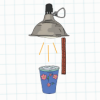
Insulation Station
Source Institutions
In this physical sciences activity, learners explore insulation. Leaners investigate how insulation can be used to slow down the conduction of heat from one side of a wall to the other.
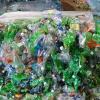
Reusable Rockets
Source Institutions
This activity (located on page 3 of the PDF under GPS: Garbology Activity) is a full inquiry investigation into design optimization using recycled materials.
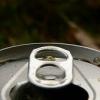
Having a Gas with Cola
Source Institutions
In this activity, learners measure the amount of carbon dioxide in a carbonated drink.
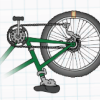
Pedal Power
Source Institutions
In this engineering activity, learners examine bicycle mechanics and gear ratios. Learners determine which gears will help them bike a set course in the shortest amount of time.
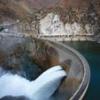
Engineer a Dam
Source Institutions
In this activity, learners explore the function and engineering of dams and how dams have many uses and solve many problems in the world.

Tinkering with Tops
Source Institutions
In this activity, learners explore the history, design and motion of spinning tops. Learners work in teams of "engineers" to design and build their own tops out of everyday items.
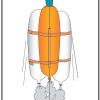
Heavy Lifting
Source Institutions
In this activity, learners work in NASA teams to build balloon-powered rockets using identical parts and compete to launch the greatest number of paper clips to "space" (the ceiling).

Design a Landing Pod!
Source Institutions
In this team design challenge (page 11-18 of PDF), learners design and build a Landing Pod for a model Lunar Rover (previously built in activity on page 1-10 of PDF).

How can Clouds Help Keep the Air Warmer?
Source Institutions
In this activity, learners explore how air warms when it condenses water vapor or makes clouds.
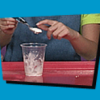
ZOOM Glue
Source Institutions
In this activity, learners mix milk, vinegar, baking soda, and water to create sticky glue. Use this activity to explain how engineers develop and evaluate new materials and products.
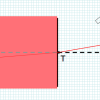
Super Gelatin
Source Institutions
Can gelatin (like Jell-O ®) change the speed of light?
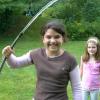
Gravity Fountains
Source Institutions
This activity (located on page 3 of the PDF under GPS: Glaciers Activity) is a full inquiry investigation into the forces of gravity and air pressure.
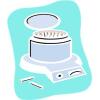
Thymus DNA Extractions
Source Institutions
This laboratory exercise is designed to show learners how DNA can be extracted from a chunk of thymus (sweetbread) or liver.
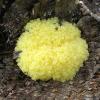
Collaboration via Slime Mold
Source Institutions
In this highly collaborative activity, learners design and complete a controlled experiment which attempts to answer a simple question about the slime mold Physarum.
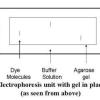
Gel Electrophoresis of Dyes
Source Institutions
In this experiment related to plant biotechnology, learners discover how to prepare and load an electrophoresis gel.
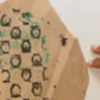
Print Hints
Source Institutions
In this physical sciences activity, learners explore how forensic investigators collect prints from a crime scene. Learners make hand impressions in damp sand and analyze the patterns they observe.
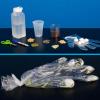
Grow a Garden in a Glove
Source Institutions
Learners use a transparent plastic glove as a container to grow seeds. A different kind of seed can be planted in each finger.
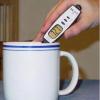
Taking Its Temperature
Source Institutions
In this activity (pages 5-7), learners investigate the properties of smart materials, which are materials that respond to things that happen around them.
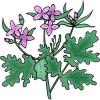
Photosynthetic Pictures Are Worth More Than a Thousand Words
Source Institutions
This activity provides an opportunity for learners to observe and examine how carbon dioxide, water, and light produce glucose/starch through a process called photosynthesis.
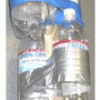
Portable Potable Pressure
Source Institutions
In this activity, learners use plastic water bottles, wood, and water to build an inexpensive and portable tool to demonstrate one atmosphere of pressure at sea level.
